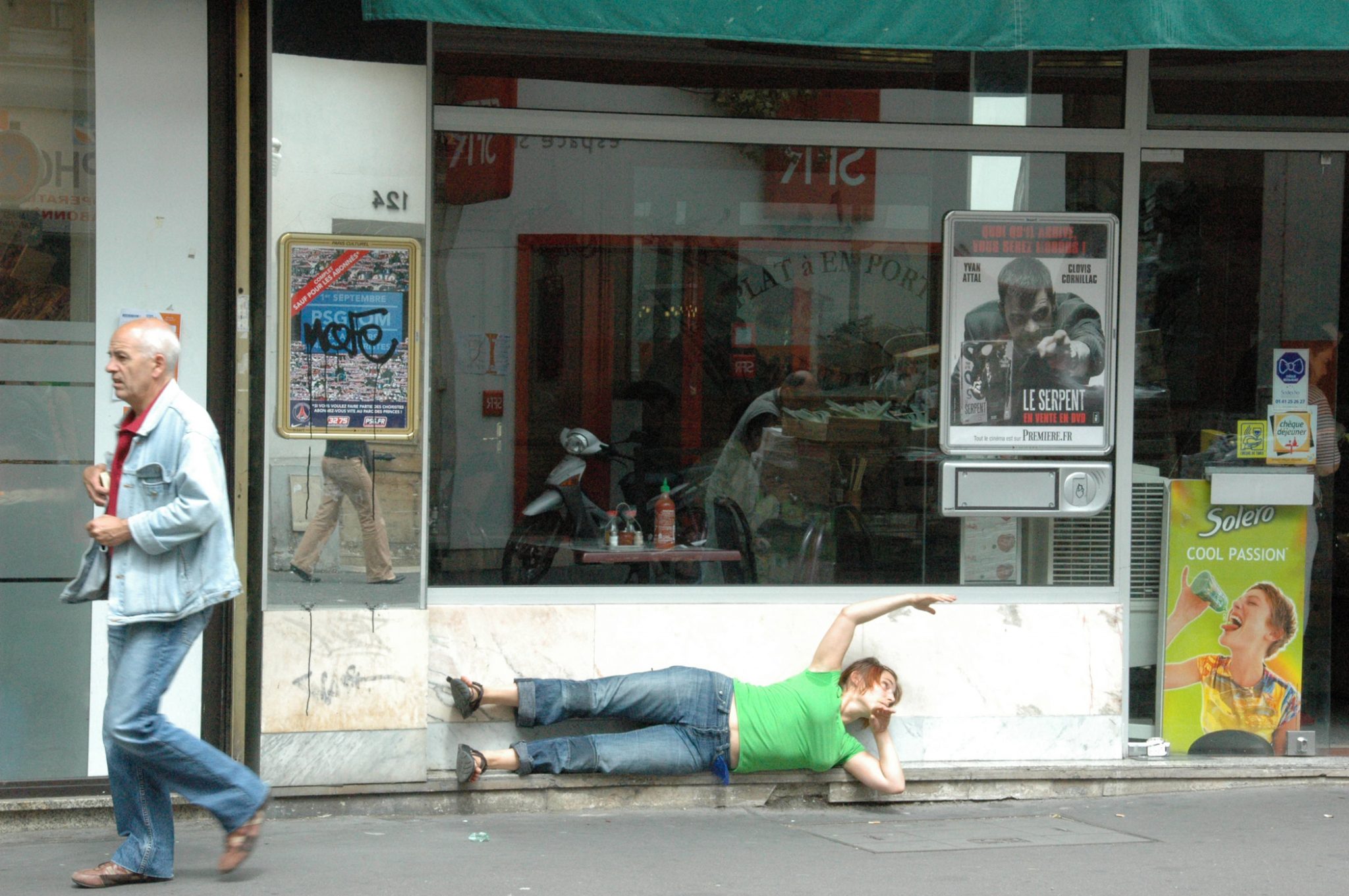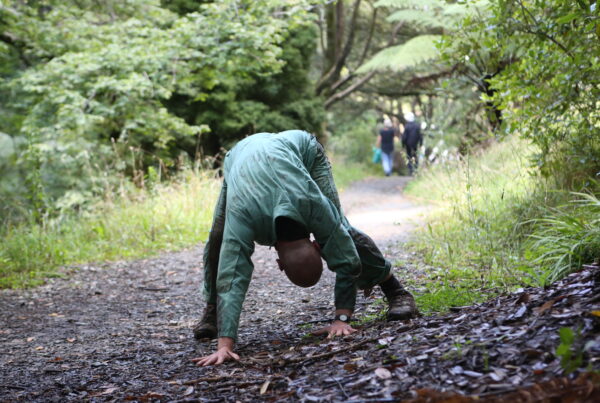author: Mandy Morrison
date: 05/01/06
source: New York Arts Magazine
Mandy Morrison: What influenced your decision to create (performative) work that would interact in a public sphere?
Olive Bieringa: I was interested in how these very specific dance and performance practices born from somatic, perceptual and improvisational practices can interface with an audience beyond the improvisational/somatic dance ghetto and how I can interface with a world in which I am not the center of the universe. In working in urban/wild landscapes dance makes a new sense. The dance dialogue between self, other and environment has an inherent logic and implications beyond the metaphorical in terms of how we relate to others and the environments we move through and live in.
MM: Audiences tend to be both fascinated by as well as intimidated by confrontational work. What benefits does the viewer derive from this experience and how do you think this can affect a larger politic?
OB: I don’t see our work as confrontational. I think it is provocative. Working environmentally or site specifically…people can always walk away if they want to. In eight years of making work in public spaces across the USA, and other parts of the world I have experienced very little aggression. We have often practiced having a bridge person, (sometimes undercover sometimes not), whose role it is to talk with the audience engaging them in dialogue and reverse their question, “what is this?” with “what do you see?” We all generate meaning all the time. Often we don’t value these meanings. We are not creating political theater but the work is irrefutably political in its act of reclaiming public space; spaces which are often choked with consumerism, fear or intimidation.
Engaging people in a kinesthetic experience, provides opportunities for people to value their bodies . Understanding the cause and effect relationship their actions have on others, whole communities and the environment. Each thing we do is of consequence to the world. Have awareness. That is my political speech.
MM: What types of performances or experiences have been the most provocative and meaningful to you personally (or in the case of a group, collectively)? Why?
OB: My new solo GO is providing a vehicle for me on a social level to spend time with people on the street. Who is the most open to interacting with me and interested in what I am doing? Who are the people that want to be seen? Who are the people that don’t want to be seen but are visible? There are all these questions around class and race coming to the table. It is exciting. I feel that in the parts of my life I don’t get to deal with those issues in such a straightforward manner. When I am working out in the street I do have the privilege of being white and therefore, I can get away with far more than if I were black, probably. I can also be invisible if I choose to be invisible. I also feel like I have a responsibility then to really be diplomatic or to be really articulate in the choices that I am making when I engage with pedestrians or work in a particular neighborhood. Dialog is what I am working with because as I walk down the street before I do my solo I go into local businesses and I say, “This is what I am doing down the street. Is there any possibility I could come in and do something for a minute inside your store?” What I want to do is keep going back to these places over time and see how different relationships change. I want to see if the different people who are living in the street or the people who are running businesses on the street change and develop their roles through the process of this returning conversation. It is less about my dancing and more about creating containers for people to see the street and reveal the life of what is really there. But some people do not want to be seen and I have to figure out how to negotiate those interfaces with people in that moment.
MM: Do you think that American culture as a whole has become more passive regarding the political issues affecting them or merely preoccupied?
OB: Both. People are struggling financially and feel disempowered as our voices are not heard. Both individuals and organizations are far less willing to stick their neck out, have their voices heard, their bodies seen. People are hiding to protect what they have got and pretending that the system will come right. I think there is a huge amount of denial happening. Have we given up on hope? I hope not? But we have to keep engaging…putting ourselves, our voices, our bodies out into the world speaking what matters to us.
MM: Do you think that contemporary artists (and the art community as a whole) generally veers towards certain types of practices for reasons of fashion, conviction or economics?
OB: Yes we all want to be loved and supported in our art making process. Some people find their formula. Some people continue to ask questions even if they are hard questions for us as individuals.


